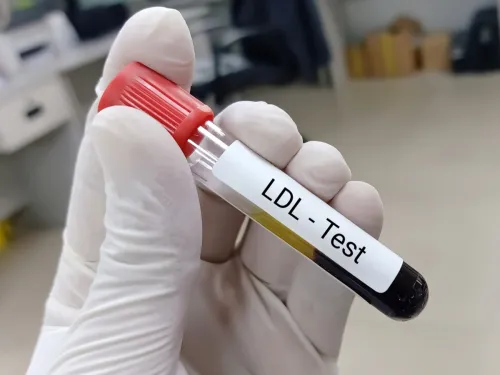10 Signs You’re Eating Too Much Red Meat, According to Doctors

Doctors and dietitians agree: If you want to improve your health, one of the best things you can do is to eat a nutrient-dense diet full of whole, plant-based foods. Of course, there’s also an important role for lean sources of protein, the building blocks that make up our muscles, bones, cartilage, blood, skin, enzymes, and more. Experts recommend eating chicken, turkey, fatty fish, eggs, legumes, and nuts, while also limiting your intake of red meat and processed meat, such as steak, pork, deli meat, and sausages.
“Eating large amounts of red meat, particularly processed varieties, is associated with a higher risk of chronic diseases such as colorectal cancer and type 2 diabetes. This is often due to the presence of carcinogenic compounds formed during meat processing or cooking,” says Michelle Routhenstein, MS, RD, CDCES, CDN, a preventive cardiology dietitian at Entirely Nourished.
According to Harvard Health Publishing, the average American eats at least five servings of red or processed meat per week—but the World Cancer Research Fund International says we should eat no more than three. To complicate matters further, we often don’t realize that our portion sizes are wildly out of scale.
“Eating a steakhouse filet, which typically weighs up to 12 ounces, you could consume roughly three and a half servings in a single meal,” Harvard experts warn.
Wondering how eating too much red meat could be impacting your health? These are the 10 signs you’re consuming too much, according to doctors and dietitians.
RELATED: 6 Signs You’re Eating Too Much Protein, According to Doctors.
1
Digestive problems

One of the most common problems associated with eating too much red meat is developing digestive problems. As Routhenstein explains, because red meat is low in fiber, eating it can cause constipation or bloating. It may also irritate the stomach and cause diarrhea.
Brynna Connor, MD, a board-certified family physician and healthcare ambassador at NorthWestPharmacy.com, explains why fiber can have such a profound impact on gut health.
“Fiber has several functions in the digestive tract. It helps waste move through the body, increases the size of your stool, softens it (making it easier to pass!), and regulates bowel movements,” Connor says.
“When your body isn’t getting enough dietary fiber, waste doesn’t move through your body as efficiently, and your stool hardens and becomes more difficult to pass. It then sits in your colon for longer, allowing bacteria to ferment, which releases gas that causes bloating,” the physician tells Best Life.
2
High LDL cholesterol

Having high cholesterol is usually asymptomatic, but you may learn that you have it through testing at your doctor’s office. If you have high LDL cholesterol—the “bad” cholesterol that can build up in the arteries and harden them—this may be a sign that you’re eating too much red meat.
“Elevated LDL and apoB laboratory levels, markers of plaque-forming cholesterol, can indicate excessive intake of red meat’s high saturated fat and TMAO content, which may increase the risk of heart disease,” says Routheinstein.
RELATED: 7 Foods to Avoid With High Blood Pressure, Doctors Say.
3
High blood pressure

Another symptom you might notice at your next medical check-up is high blood pressure.
“Red meat tends to be higher in overall calories and fat, specifically saturated fat and cholesterol. While much debate continues around this, solid evidence links a higher red meat consumption to increased cardiovascular disease risk,” says Jennie Stanford, MD, an obesity medicine physician and medical contributor for Drugwatch. She notes that this can lead to heart attacks and strokes.
“Hypertension (high blood pressure) is another potential effect of too much red meat, especially the heavily processed types,” she adds.
4
Bad breath

If you’re struggling with halitosis, this may also be related to your red meat consumption.
“There are several reasons why red meat, especially when eaten in large quantities, can contribute to unpleasant smells, either through bad breath or body odor,” says Connor. “When it comes to bad breath, if you don’t brush or floss adequately after eating meat, residual pieces can become stuck in your teeth and attract bacteria, which leads to an unpleasant odor.”
“Halitosis can also occur because when the body breaks down protein during the digestive process, it creates ammonia as a bi-product, some of which can escape through your mouth, and typically smells similar to cat urine,” she adds.
RELATED: 15 Best Foods to Eat If You Have High Blood Pressure, Doctors Say.
5
Body odor

It’s also not uncommon to develop body odor as a result of eating too much red meat.
“Foul-smelling body odor can be due to eating too much red meat, and it happens because red meat can be difficult for the body to break down,” Connor explains. “Red meat leaves a residue in the digestive tract, which mixes with bacteria to create fatty acids and is then expelled from the body through sweat. When the fatty acids mix with bacteria on the skin (especially in larger quantities, which can occur when eating too much red meat), it can have an offensive smell.”
6
Skin problems

Skin problems can also be explained by your diet if you tend to eat too much red meat.
“Excessive red meat intake, especially with high saturated fat content, can contribute to skin issues such as acne or dullness due to its impact on overall inflammation levels,” Routhenstein points out.
RELATED: The 3 “Ultraprocessed” Foods You Must Avoid for a Longer Life, 30-Year Study Finds.
7
Fatigue or muscle weakness

Eating lots of protein is usually associated with vitality and physical vigor since your muscles need protein to grow and repair. However, the experts point out that eating too much red meat can leave you feeling fatigued or weak.
“Although your protein intake may be high if you eat a lot of red meat, it may come at the expense of other essential vitamins, minerals, and/or nutrients your body needs to function properly,” says Connor. “Often, nutritional deficiencies can manifest as fatigue or weakness, which can be caused by eating too much red meat.”
8
Weight gain

“Weight gain and obesity are solidly linked with a high consumption of red meat,” Stanford says. “Red meat is high in calories, and oftentimes, people tend to eat larger portions, which can result in weight gain and obesity.”
RELATED: Cardiac Surgeon Shares 4 Foods He Avoids for Heart Health in New Video.
9
Joint pain

Your gut health influences your inflammation levels, and your inflammation levels influence your likelihood of developing a wide range of chronic illnesses. Connor says that if you eat excessive amounts of red meat regularly, you may develop joint pain as one expression of chronic inflammation.
“Red meat is higher in fat (and saturated fat) than other types of protein, and research has shown that it may increase levels of interleukin-6 (IL-6), C-reactive protein (CRP), and homocysteine, which are markers of inflammation,” the physician tells Best life. “This inflammation is not limited to the gut but can manifest in the joints.”
She adds that another reason too much red meat can potentially cause joint pain is that it’s high in purines, a natural chemical found in our bodies. “When broken down, these create uric acid. When uric acid builds up in the blood it creates crystals that get lodged in joints, which leads to pain and swelling,” Connor explains.
10
Kidney disease

People who eat too much red meat may also simply be eating too much protein overall. One of the most common symptoms of hypoproteinemia is that it can affect kidney function.
Raj Dasgupta, MD, a medical reviewer for NCOA and an ABIM quadruple board-certified physician specializing in internal medicine, pulmonology, critical care, and sleep medicine, previously told Best Life that if you already have kidney disease, following a high-protein diet may worsen your kidney function. This is because the body may not be able to remove all of the waste products associated with proteins.
Recent research also suggests that some people may experience kidney symptoms, even if they have no history of impaired kidney function. A 2020 study published in the Journal of the American Society of Nephrology (JASN) found that high-protein diets were associated with an increased incidence of de novo (new onset) chronic kidney disease (CKD).